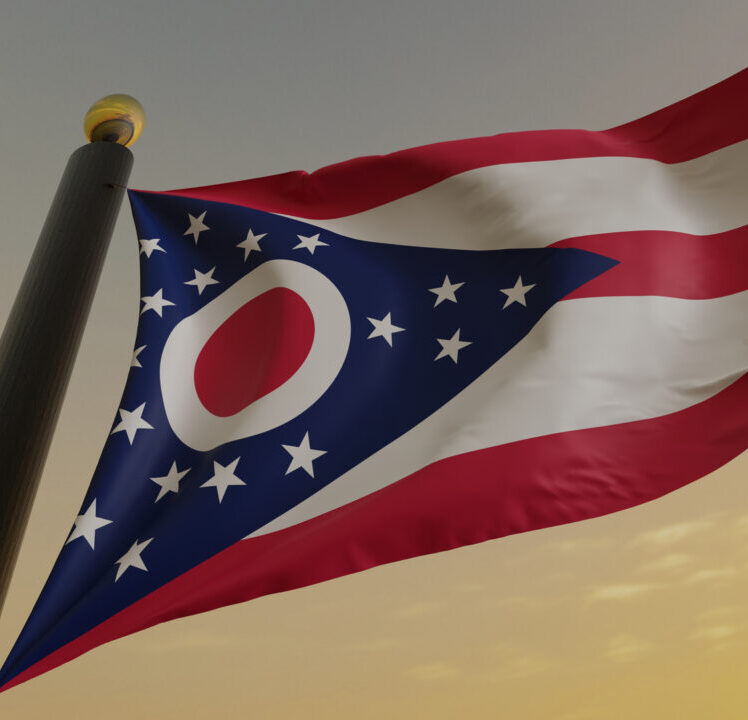- Casino News
- USA News
Ohio Governor Pushes for 40 Percent Sports Betting Tax


Ohio’s Betting Tax Battle
Ohio Governor Mike DeWine has unveiled his final budget proposal, which includes a major tax hike on sports betting operators. The proposed increase, raising the tax from 20% to 40%, marks the second hike in less than a year. If approved by the state legislature, Ohio would become the second-most expensive sports betting market in the country, trailing only New York’s 51% tax rate.
The move has sparked backlash from the industry, with critics arguing it could push consumers toward unregulated markets, reduce investment in the state, and lead to lower-quality betting products. DeWine, however, maintains that the revenue generated will serve a greater purpose—funding a new stadium for the Cleveland Browns and supporting youth sports initiatives. The proposal places Ohio at the center of a growing national debate over how states should regulate and tax sports betting while balancing economic growth and public interests.
The Proposed Tax Hike
Ohio initially entered the sports betting market as a relatively operator-friendly state, taxing revenues at 10% when the industry launched in 2023. However, DeWine pushed through an increase to 20% later that year, citing concerns about the industry’s aggressive marketing and its effects on Ohioans. The latest proposal, doubling the rate to 40%, would further reshape the state’s gambling landscape, potentially deterring new operators, reducing competitiveness, and altering the overall market dynamics.
If passed, the tax hike would place Ohio in the upper echelon of sports betting taxation, second only to New York’s 51% rate. Illinois recently introduced a sliding scale tax structure ranging from 20% to 40%, with the highest-grossing companies paying the most. DeWine’s proposal, however, takes a blanket approach, imposing the maximum rate on all operators regardless of revenue. The lack of a tiered system could disproportionately impact smaller sportsbooks, potentially forcing some out of the market.
DeWine intends to allocate revenue from the tax increase to a newly created “Sports Construction & Education Fund,” with an immediate focus on financing a new Cleveland Browns stadium. The team is currently embroiled in a legal battle with the city of Cleveland, seeking the right to relocate its venue to the suburbs. The issue has reignited debates over public funding for sports stadiums and whether gambling revenue should be used to subsidize private franchises.
Ohio’s “Modell Law” complicates franchise relocations by making it harder for teams to leave publicly funded stadiums. DeWine’s tax plan appears to be an attempt to keep the Browns in Cleveland while shifting the financial burden to sports betting operators. Some supporters of the plan argue that since sports betting has benefitted from the popularity of professional sports, it is only fair that a portion of the industry’s profits be used to support stadium development.
“These sports gaming [groups] are extremely aggressive…. They’re in your face all the time,” DeWine told the Ohio Capital Journal. “They’re getting Ohioans to lose massive amounts of money every year, and it seems to me only just and fair that some of the stadiums be paid for by them or a portion of it.”
According to budget estimates, the tax increase could generate between $130 million and $180 million in new revenue annually. While this would help fund sports infrastructure, critics argue that using gambling tax revenue to subsidize billion-dollar franchises sets a troubling precedent.
Industry Concerns
Major sportsbooks operating in Ohio—including BetMGM, DraftKings, FanDuel, and Fanatics Sportsbook—have strongly opposed the proposal. The Sports Betting Alliance (SBA), which represents these companies, argues that such an aggressive tax hike could stifle investment, degrade the quality of betting products, and ultimately push consumers toward offshore markets.
“This would amount to a 400% tax increase over a two-year period,” said SBA vice president Scott Ward. “Upstanding American businesses, who work closely with state regulators, shouldn’t have to fear government arbitrarily raising their taxes by exorbitant amounts. But that’s exactly what Ohio sports betting consumers are facing.”
Ward also warned that a high tax rate could incentivize gamblers to seek out unregulated offshore sportsbooks, which operate without state oversight and often provide better odds due to lower costs. Unregulated platforms do not contribute tax revenue to Ohio, do not offer responsible gambling tools, and are often linked to legal and security risks. Opponents of the tax hike worry that instead of increasing revenue for the state, it may drive more bettors toward these alternatives, ultimately harming both consumers and the legal gambling industry.
Gambling consultant Brendan Bussmann echoed these concerns, calling the move a “head-scratcher” from a Republican governor. “He apparently failed Economics 101,” Bussmann told iGB, criticizing the idea of doubling a business tax twice in two years. He argued that the move contradicts traditional conservative economic principles, which typically favor business-friendly policies and lower tax rates to encourage investment.
This would amount to a 400% tax increase over a two-year period. Upstanding American businesses, who work closely with state regulators, shouldn’t have to fear government arbitrarily raising their taxes by exorbitant amounts. But that’s exactly what Ohio sports betting consumers are facing.
Conclusion
Governor DeWine’s proposed tax hike places Ohio at a critical crossroads in its sports betting regulation. While the additional revenue could help fund major sports infrastructure projects, the long-term impact on the state’s betting market remains uncertain. If the legislature approves the measure, Ohio could see fewer sportsbook operators, reduced investment, and a potential shift toward unregulated gambling platforms.
The debate over balancing public funding and business incentives will likely dominate legislative discussions in the coming months. Whether Ohioans benefit from the proposal—or find themselves paying the price in the form of diminished betting options—remains to be seen. The state legislature now faces the challenge of determining whether DeWine’s approach strikes the right balance between taxation, consumer protection, and economic growth.








